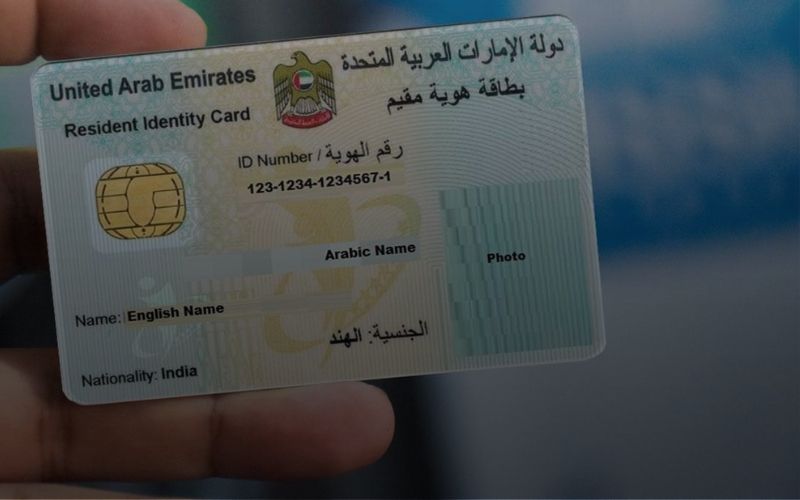The United Arab Emirates (UAE) is a place where many people want to work and live. If you’re one of them, you need to understand how to get a UAE work visa. This guide will explain the steps in a simple way, so you can follow them easily. Whether you’re a professional, a businessperson, or just someone looking for a job abroad, this guide will help you figure out how to get your UAE work visa. It’s the first and most important step to starting a new chapter in your career and life in the UAE. Let’s go through the process together, step by step, to make it clear and easy for you.
Types of UAE Work Visas
Let’s delve into the details of three types of UAE work visas: the Standard Work Visa, the Green Visa, and the Golden Visa.
1. Standard Work Visa:
The Standard Work Visa, also known as the Employment Visa, is the most common type of work visa in the UAE.
It is typically issued to skilled professionals, employees, and workers who have secured a legitimate job offer from a UAE-based employer.
Here are the key features and requirements of the Standard Work Visa:
Job Offer: You must have a job offer from a UAE employer to apply for this visa.
Sponsorship: Your employer serves as your sponsor and is responsible for processing your visa application.
Contract: You and your employer will sign an employment contract outlining your job responsibilities, salary, benefits, and other terms of employment.
Medical Examination: Before obtaining the visa, you must undergo a medical examination to ensure you do not have contagious diseases.
Security Clearance: You may be required to obtain a security clearance certificate, which involves background checks to ensure you do not have a criminal record.
Renewal: Standard Work Visas are typically valid for two or three years, with the possibility of renewal.
2. Green Visa:
The Green Visa, also known as the Remote Work Visa or Digital Nomad Visa, is a relatively new category introduced by the UAE government in response to changing work trends.
It is designed for remote workers, freelancers, and entrepreneurs who do not need to be physically present in a UAE office to perform their work.
Key features and requirements of the Green Visa include:
Eligibility: You must have a reliable source of income, either through remote work, freelancing, or owning an online business.
Sponsorship: You can be sponsored by a UAE-based company or apply directly for this visa.
Benefits: Green Visa holders can live and work in the UAE without the need for a traditional UAE employer.
No Local Office: You are not required to set up a physical office in the UAE, making it ideal for digital nomads and remote workers.
Renewal: Green Visas are typically valid for up to one year and can be renewed.
3. Golden Visa:

The Golden Visa is a prestigious long-term residency program introduced by the UAE government to attract investors, entrepreneurs, skilled professionals, and retirees.
It is available to individuals who meet specific investment criteria and contribute to the UAE’s economic development.
Key features and requirements of the Golden Visa include:
Investment: To qualify for a Golden Visa, you can make investments in the UAE, such as buying property, Starting a Business, or making significant financial investments.
Duration: Golden Visas can be granted for 5 or 10 years, depending on the type of investment made.
Family Inclusion: The visa can be extended to your spouse, children, and sometimes even parents.
No Age Limit: There is no age limit for Golden Visa applicants.
Renewal: Golden Visas are renewable as long as the investment criteria are met.
It’s important to note that visa regulations in the UAE can change, and specific eligibility criteria may vary over time. Therefore, it’s advisable to consult the official website of the UAE government for the most up-to-date information and guidance on visa applications, including Standard Work Visas, Green Visas, and Golden Visas.
How to Get a UAE Work Visa?
Obtaining a UAE work visa involves several steps, and it’s crucial to follow them carefully to ensure a smooth and successful application process. Here’s a detailed guide in 10 steps:
Step 1: Secure a Job Offer

Before you can apply for a UAE work visa, you must secure a job offer from a UAE-based employer. Without a job offer, you cannot proceed with the visa application.
Step 2: Medical Examination
After receiving the job offer, you will need to undergo a medical examination. This examination is to ensure you are in good health and free from contagious diseases. Visit an approved medical centre or hospital for the required blood tests and chest X-rays.
Step 3: Security Clearance
Obtain a security clearance certificate. This involves background checks to confirm that you do not have a criminal record. The process may vary depending on your home country and the specific requirements of the UAE government.
Step 4: Employment Contract
Review and sign the employment contract provided by your UAE employer. This contract should outline your job responsibilities, salary, benefits, working hours, and other terms of employment. Ensure that you understand all the terms before signing.
Step 5: Visa Application by Employer
Your UAE employer will initiate the visa application process on your behalf. They will submit the necessary documents to the UAE’s Ministry of Human Resources and Emiratisation (MOHRE) for initial approval. Documents may include your job offer letter, medical examination results, security clearance certificate, and employment contract.
Step 6: Entry Permit Issuance
Upon receiving initial approval from MOHRE, you will be issued an entry permit. This permit allows you to enter the UAE for the purpose of employment. It is essential to enter the country within the specified timeframe mentioned on the entry permit.
Step 7: Status Change
After arriving in the UAE, your status will change to that of a resident. Your employer will guide you through the process of obtaining a residence visa, which permits you to legally live and work in the country.
Step 8: Emirates ID

Apply for an Emirates ID card. This is an official identification document within the UAE and is required for various transactions, including opening a bank account, obtaining utilities, and conducting official business.
Step 9: Medical Insurance
Ensure that you have medical insurance coverage. Employers in the UAE are typically required to provide their employees with medical insurance. Verify that your insurance plan complies with UAE regulations.
Step 10: Visa Stamping
Your work visa will be stamped in your passport, indicating your legal right to work in the UAE. Ensure that all details on the visa stamp are accurate before leaving the immigration office.
Remember that the specific requirements and processes may vary based on your nationality, the emirate where you will be working, and changes in UAE immigration laws. Therefore, it’s advisable to check the official website of the UAE government or consult the UAE embassy or consulate in your home country for the most up-to-date information and guidance on obtaining a UAE work visa.
Read More: Everything You Need To Know About Dubai Investor Visa
Conclusion:
Getting a UAE work visa is a big step in your career and a chance to explore new opportunities in the United Arab Emirates. The ten-step process might seem a bit overwhelming, but if you prepare well and follow the rules carefully, you can do it successfully.
As you start your journey to get a UAE work visa, pay attention to the small details. Make sure all your papers are correct, and listen to what your UAE employer tells you during the application.
Getting a UAE work visa is a great accomplishment that can lead to a fulfilling career. If you follow the steps and keep yourself informed, you can start your new job in the UAE with confidence and excitement. Your exciting new adventure is just around the corner!





